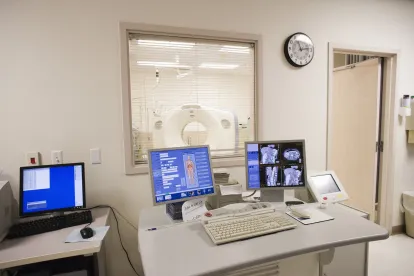On March 23, 2020, the Centers for Medicare & Medicaid Services (CMS) announced that, effective immediately, it is temporarily postponing routine facility inspection and focusing on infection control and situations involving Immediate Jeopardy (where patient safety is placed in imminent danger). CMS is rolling out a new focused survey and inspection process to assess whether facilities are prepared for COVID-19, and has published a fact sheet describing the initiative. This will apply to inspections of all Medicare and Medicaid certified provider and supplier types across the country, such as long term care facilities (nursing homes), hospitals, and CLIA laboratories.
The process is three-pronged:
-
CMS will continue to prioritize Immediate Jeopardy;
-
CMS will work with the Centers for Disease Control and Prevention (CDC) to identify areas at risk of COVID-19 spread to ensure providers are compliant with longstanding federal infection control requirements; and
-
CMS is rolling out a voluntary self-assessment tool (Infection Control checklist) so providers can review their own compliance with federal infection control requirements. Although the tool is voluntary, CMS noted that if an inspection takes place, surveyors may request this document.
CMS has also developed a focused tool for inspectors – one for long-term care and one for other providers – to operationalize guidance from CMS and CDC.
According to CMS, under this survey process, only the following types of federal inspections will be prioritized and conducted over the next few weeks:
-
Complaint inspections: State survey agencies will continue to conduct inspections related to complaints and facility-reported incidents that are triaged at the Immediate Jeopardy level, which may include allegations of physical or sexual abuse, neglect or other conditions that may create an imminent threat. Inspectors will use a streamlined Infection Control review tool for this, however, regardless of the Immediate Jeopardy allegation.
-
Targeted Infection Control inspections: Federal and state inspectors will conduct targeted onsite and offsite infection control inspections of providers identified through CMS collaboration with the CDC. A streamlined targeted review checklist will be used, to minimize the impact on provider activities while ensuring providers are implementing actions to protect health and safety. According to CMS, providers will receive immediate feedback to address potential issues.
-
Self-Assessments: The Infection Control checklist will be shared with providers and suppliers, to allow for self-assessment of their Infection Control plans. CMS noted that this may be the best solution in some cases when there is a lack of personal protective equipment or state surveyors available.
During this time frame, which CMS indicated will span three weeks, the following inspections will not be conducted:
-
Standard inspections for nursing homes/long term care facilities, hospitals, home health agencies, intermediate care facilities for individuals with intellectual disabilities, and hospices; and
-
Revisit inspections not associated with Immediate Jeopardy.
For Clinical Laboratory Improvement Amendment (CLIA) laboratories, CMS said it will prioritize Immediate Jeopardy investigations over recertification, using enforcement discretion, unless Immediate Jeopardy situations arise, and continue to conduct initial inspections in accordance with current guidance and prioritization.
CMS indicated certain current enforcement actions are being suspended, including denials of payment for new admissions, to allow for increased capacity and hold providers harmless for penalties that may otherwise accrue without an opportunity to demonstrate compliance. Enforcement remedies associated with identified and unresolved Immediate Jeopardy situations will continue.
CMS Administrator Seema Verma urged facilities, “Don’t wait to be inspected. Starting today, you can – and should – use CMS’s self-assessment tool to ensure you’re prepared to prevent the spread of Coronavirus.” For health care facilities that aren’t initially inspected, CMS urges using the tool to self-assess their own ability to prevent the spread of COVID-19.



 />i
/>i
